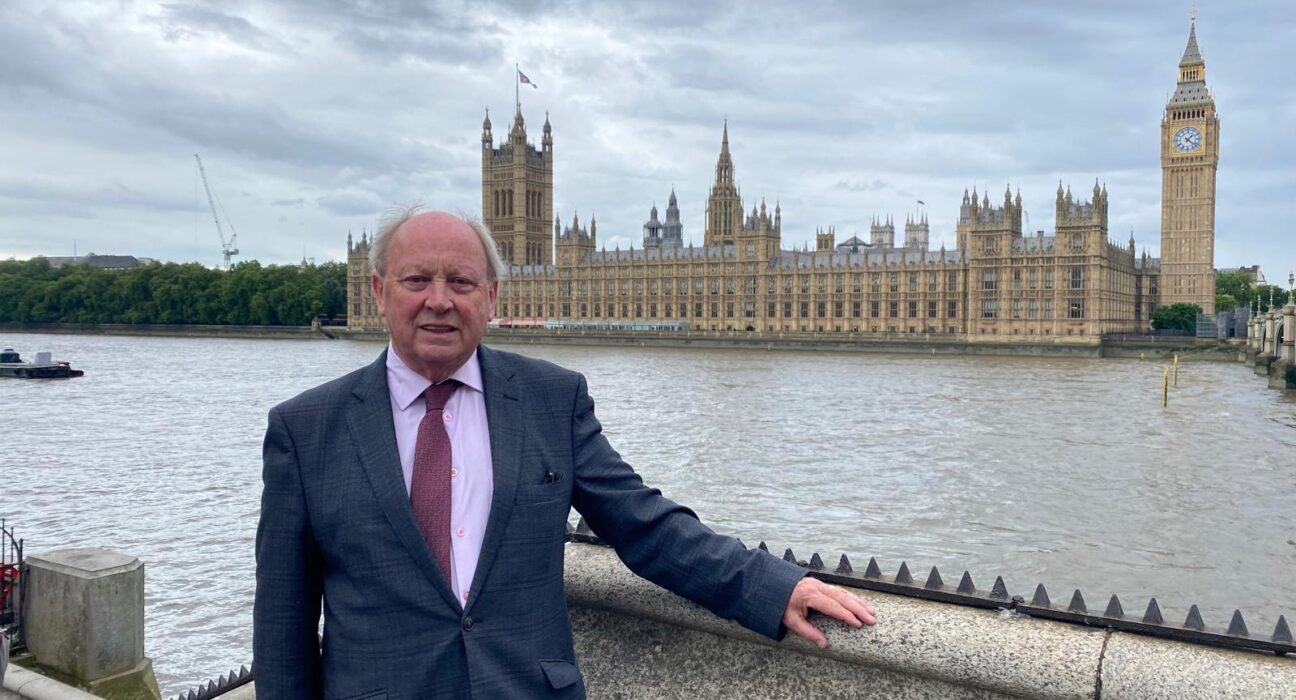The following opinion piece by TUV leader and North Antrim MP Jim Allister was published in today’s News Letter.
Last Wednesday morning I found myself the only unionist MP speaking out in the debate on the Draft Official Control Amendment Regulations, the latest piece of Government legislation for the purpose of setting Northern Ireland apart from the rest of the United Kingdom and effectively treating us as a ‘third country’ i.e. a foreign country, in relation to the rest of the UK. When the Government tried to nod the legislation through yesterday, I, and other unionist MPs opposed it, forcing a vote in the House of Commons tomorrow. Ahead of the vote, I want to use this article to unpack some of the problems with the regulations and set out what I believe is the only honourable way forward.
When the Northern Ireland Protocol was first introduced the Government made a great deal of the fact that goods moving from Northern Ireland would have unfettered access to Great Britain. On first hearing this one could have been forgiven for thinking they had actually decided against the Irish Sea Border. However, what they were really doing was engaging in a most remarkable piece of sophistry, implying that we should not worry because the border requirements would only be made in relation to goods moving across the border one way, from Great Britain to Northern Ireland, not goods moving from Northern Ireland to Great Britain. There have always been at least three major problems with this contorted defence of the Irish Sea Border.
In the first instance, whether the border applies, one or both ways, makes no difference to the debasing of our citizenship and the fact we can no longer stand for election to make the laws to which we are subject, not just in relation to one law or 300 but in a staggering 300 areas of law.
In the second instance, you have to be economically illiterate to fall for the attempted inference that because goods can move freely from NI to GB, Northern Ireland will be OK because we will be able to sell our goods to our main market in the same way as before. The truth is that as a small part of the UK economy, NI consumers need GB suppliers, and NI companies depend hugely on inputs to their production from GB that can now only come to Northern Ireland subject to the costs of the fully disruptive red lane customs border. These now have to be passed on to the consumer in higher prices when the finished products are sold back to GB, making many NI products significantly less viable.
In the third instance, given that the purpose of the Irish Sea border was to avoid hard border arrangements on the actual international border, the assurance that the Irish Sea Border would only work one way was always a nonsense. If there really was to be no kind of customs or phytosanitary (SPS) border where the actual border is, ROI and wider EU goods would be able to move freely into GB via Northern Ireland unless the Irish Sea Border was enforced in relation to goods moving from NI to GB.
I spoke in a debate on the inevitable new legislation that now places controls on the movement of goods from NI to GB on 3 December, noting that the Government faced a choice regarding its enforcement. It could either: i) have a hard border and randomly stop and search lorries coming from NI to GB at a GB border control post to establish which lorries carry Non-NI Qualifying Goods and which lorries just carry NI Qualifying Goods and then check the Non-NI-Qualifying Goods or ii) or have a soft border, requiring, by law, that lorries carrying Non-NI Qualifying Goods issue electronic pre-declaration paperwork before starting on their journey in response to which some could then be required by the authorities to attend an SPS facility for checks which need not be at the border.
The significance of this week’s legislation is that it clarifies that the Government has now elected for the second option but in doing so they encounter a profound difficulty. In a context where the stated justification for the hugely divisive Irish Sea Border was the need to avoid a hard border along the actual international border, the fact that the Official Control Amendment Regulations demonstrate that it is acceptable to run the Irish Sea Border without border infrastructure (i.e. not as a hard border) sweeps away the justification for having the border in the wrong place. The Regulations thereby blow the UK Government’s Irish Sea Border cover, exposing the scandal that the Government has needlessly agreed to the disenfranchisement of 1.9 million of its own citizens in 300 areas of law and to undermining the territorial integrity of the UK.
In this context the Government should now urgently adopt my EU Withdrawal Arrangements Bill which returns the border to the international boundary, without any hard border infrastructure, and on the more robust basis of Mutual Enforcement. It thereby not only performs a great act of social justice, restoring dignity to the people of Northern Ireland by means of our re-enfranchisement; it also provides additional border protections above and beyond legal requirements for prenotification and attendance at a BCP away from the border set out in this week’s regulations.
My Bill continues to stand before Parliament and the Government could adopt it at any time should it choose to do so.
When there is a way of managing a border that involves disenfranchising 1.9 million people and disrespecting the territorial integrity of the UK and a way of managing the border that does not involve disenfranchising 1.9 million people and disrespecting the territorial integrity of the UK, there should be no debate about the way forward.
UK citizens, regardless of where in our United Kingdom they reside, should settle for nothing less.
Jim Allister KC MP

